Land Use

Rising Above: Innovative Solutions for Waikīkī’s Sea-Level Challenges
The University of Hawaiʻi at Mānoa’s award-winning Waikīkī sea-level rise adaptation project combines science, architecture, and community input to create scalable solutions for climate resilience and coastal flood mitigation.

Rethinking Los Angeles Landscapes: Balancing Iconic Trees and Fire Resilience
L.A. must balance fire resilience with ecological preservation by gradually replacing flammable non-native plants like eucalyptus and palm trees with native and fire-resistant species while rethinking urban landscapes and land management practices.
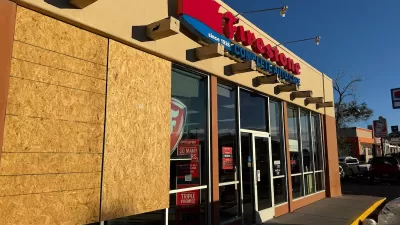
Avoiding Misplacement of a Place
To balance the interests of current residents and economic well-being, does a city's signature identity need an update?
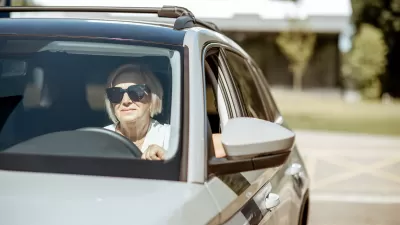
Survey Shows Boomers Are Unlikely to Stop Driving
Limited transit options and a lack of walkability mean more older Americans will continue to drive their cars as they age.
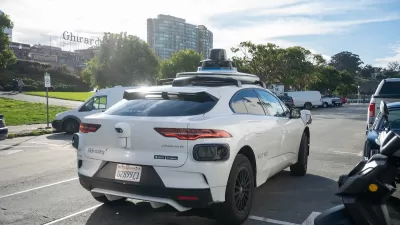
Robotaxi Charging Lots Could Complicate San Francisco Housing Development
Multiple sites slated for housing development are now being turned into charging and storage lots for autonomous vehicles, making housing an unintended victim of the robotaxi revolution.
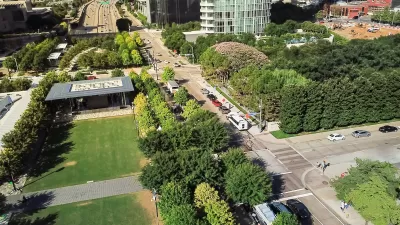
I Help Plan Cap Parks; Here’s What Austin Can Learn from Other Cities
How freeway capping projects can literally and metaphorically bridge urban divides.
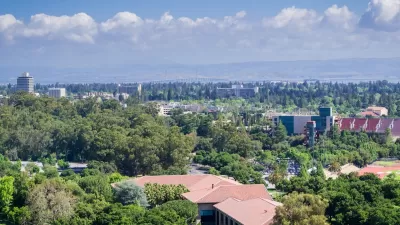
Menlo Park to Develop Parking Lots Into Housing
The city will issue a request for proposals to build subsidized housing on up to three downtown parking lots.
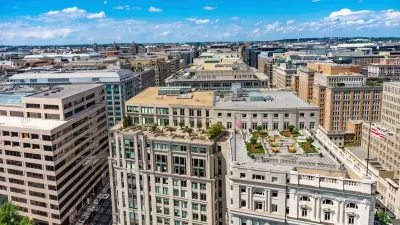
DC Announces ‘Office to Anything’ Adaptive Reuse Program
The program complements an existing residential conversion initiative and could yield up to 2.5 million square feet of new commercial space.
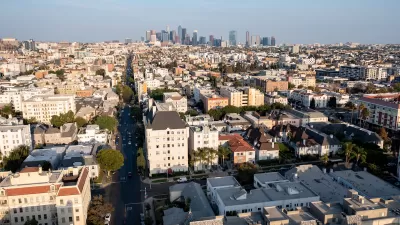
The Urban Heat Divide: Addressing LA’s Thermal Inequities
LA's thermal inequities leave low-income, minority neighborhoods disproportionately hotter and more vulnerable, prompting advocacy and policy efforts to address these disparities through green infrastructure and equitable climate investments.
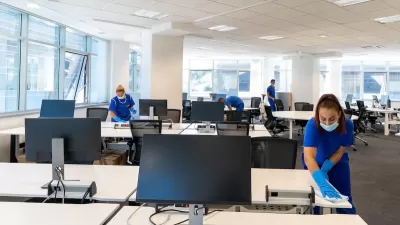
The Ripple Effects of Remote Work
The number of Americans who work from home rose sharply during the pandemic and remains high, posing important questions about the future of transportation and housing.

UCLA Experts Offer Critical Support for LA Wildfire Response and Recovery
The UCLA Luskin Center for Innovation offers expert guidance on LA wildfire response and recovery, addressing critical issues like water safety, air quality, equitable rebuilding, and climate adaptation to promote resilience and sustainability.
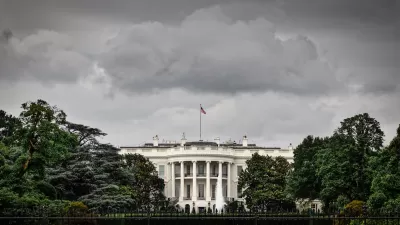
How the Trump Presidency Could Impact Urban Planning
An analysis of potential changes in federal housing, transportation, and climate policies.
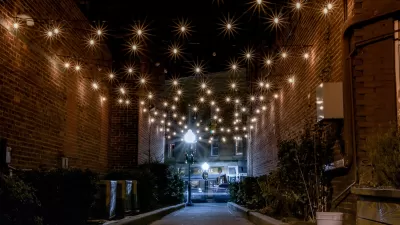
Midburbs: A New Definition of Suburbs
When the name “suburb” just doesn't quite fit.
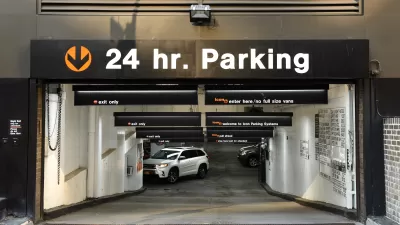
Comprehensive Parking Supply, Cost, and Price Analysis
Every time somebody purchases a vehicle they expect governments and businesses to provide parking for their use. These facilities are costly. For every dollar motorists spend on their vehicles somebody spends about a dollar on parking.
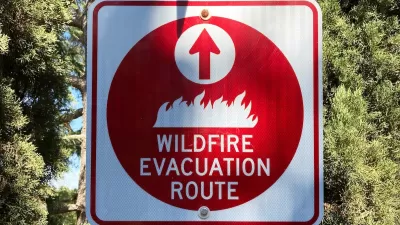
Learning From Wildfire Evacuations
Researchers are working to understand how people behave during wildfire events and how to most effectively get people to safety during deadly fires.

Parking Reform Yields New Housing
As more cities eliminate or reduce their minimum parking requirements, the impact on housing supply is coming into focus.
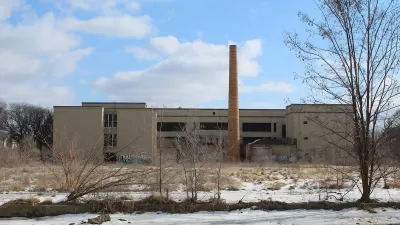
Repurposing Vacant Schools
Some communities are turning abandoned campuses into offices, art studios, and housing.
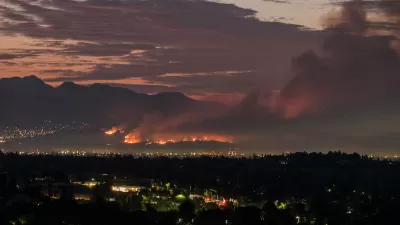
'Place Shock' and the Ecology of Fear
How to conceive of rebuilding places amid sudden change in a region known for its “ecology of fear?” As the city embarks on the arduous task of rebuilding, the question arises: how do we reconcile the imperatives of safety and sustainability with the deeply ingrained human desire for continuity, for a sense of rootedness in the familiar?
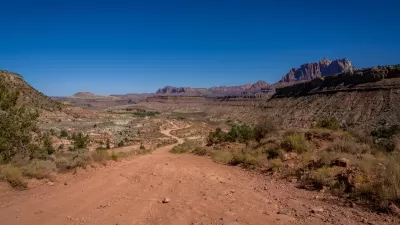
Supreme Court Declines to Hear Utah’s Case Against the BLM
The state wants more local control of public lands not designated as national parks or monuments.
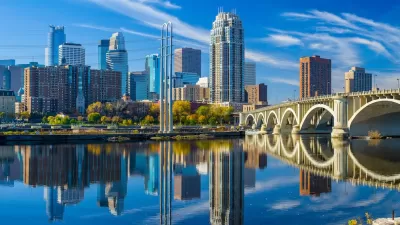
Looking Back on 60 Years of Land Development in the Twin Cities
In 1960, about 12 percent of the Twin Cities metro's land was already developed. By 2020, about 34 percent had been developed. Many factors influenced how the region has changed since 1960.
Pagination
Urban Design for Planners 1: Software Tools
This six-course series explores essential urban design concepts using open source software and equips planners with the tools they need to participate fully in the urban design process.
Planning for Universal Design
Learn the tools for implementing Universal Design in planning regulations.
City of Moreno Valley
Institute for Housing and Urban Development Studies (IHS)
City of Grandview
Harvard GSD Executive Education
City of Piedmont, CA
NYU Wagner Graduate School of Public Service
City of Cambridge, Maryland


































